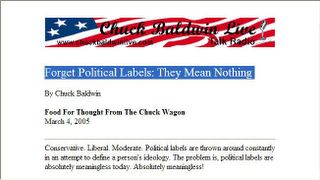
This writer and I would probably share very few core values. This column doesn't begin to address the corruption that is happening below the surface. However, I respect his willingness to speak the truth as he sees it and not be a politcal party shill: Forget Political Labels: They Mean Nothing











